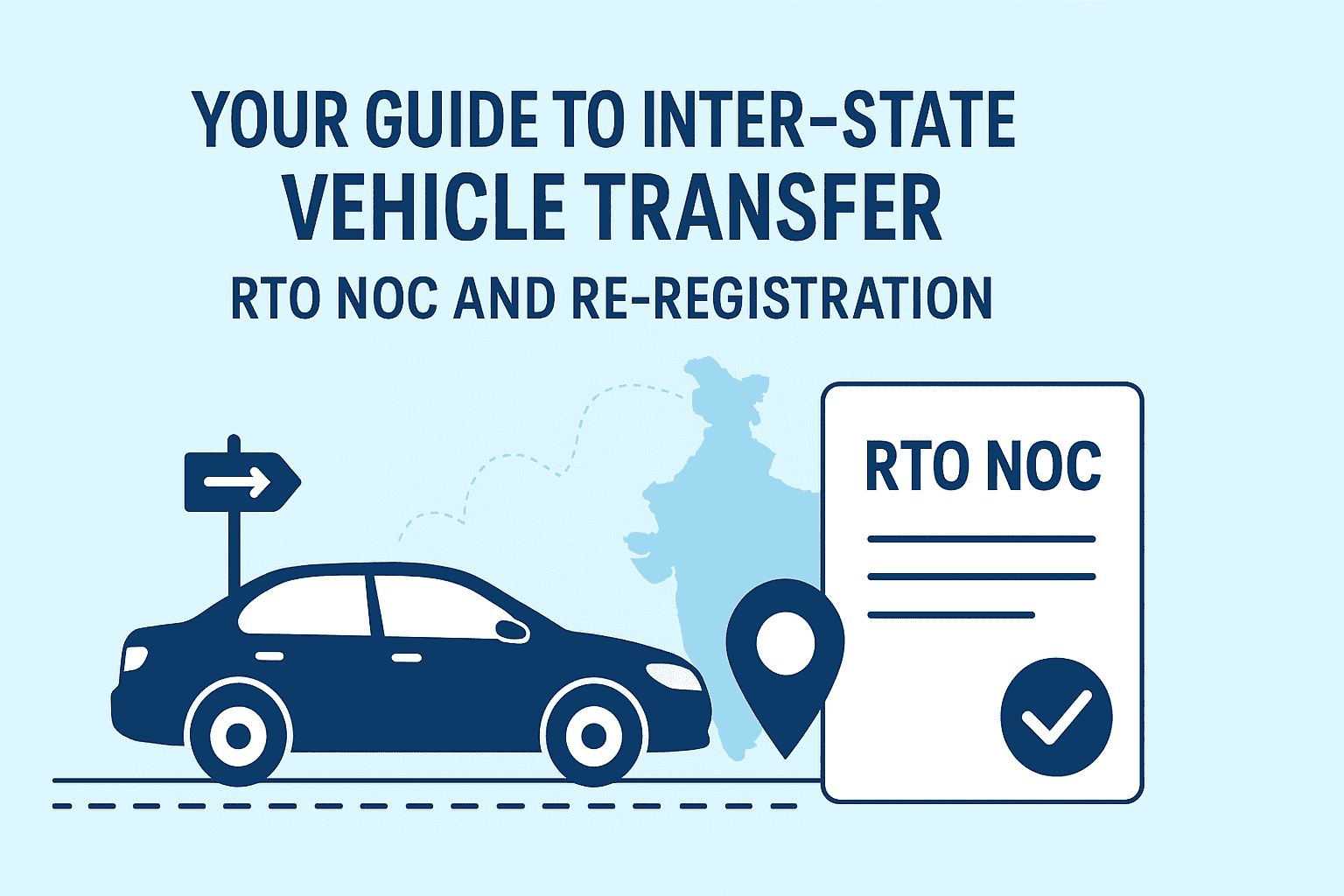Introduction to Inter-State Vehicle Transfer
Transferring a vehicle from one state to another in India can seem daunting. However, understanding the necessary steps can make the process smoother and more manageable. One of the critical components of this transfer is obtaining a No Objection Certificate (NOC) from the Regional Transport Office (RTO). This guide will take you through the essentials of inter-state vehicle transfer, focusing on the RTO NOC and the re-registration process.Understanding RTO NOC
What is RTO NOC?
A No Objection Certificate (NOC) is an official document issued by the RTO that allows the transfer of a vehicle’s registration from one state to another. The NOC confirms that there are no pending dues or legal issues associated with the vehicle. It essentially states that the RTO does not have any objections to you transferring your vehicle to a different state.Importance of RTO NOC in Vehicle Transfer
The RTO NOC is crucial for several reasons:- Legal Requirement: It is a mandatory document for transferring a vehicle to another state.
- Proof of Ownership: It helps establish that the vehicle is legally owned by you and is free from any liabilities.
- Avoids Legal Issues: Having a NOC prevents potential disputes or challenges regarding the vehicle’s ownership in the future.
How to Obtain RTO NOC
To obtain an RTO NOC, follow these steps:- Visit Your Local RTO: Go to the RTO where your vehicle is currently registered.
- Fill Out the Application: Complete the application form for a NOC. This form is usually available at the RTO office or on its official website.
- Submit Required Documents: Provide necessary documents, which typically include:
- Vehicle registration certificate
- Valid identification proof
- Address proof
- Pollution Under Control (PUC) certificate
- Pay the Fee: There may be a nominal fee associated with the NOC application.
- Wait for Approval: The RTO will process your application and issue the NOC if everything is in order. This may take a few days.
The Process of Re-registration
Reasons for Re-registration
After obtaining the RTO NOC, you will need to re-register your vehicle in the new state. Common reasons for re-registration include:- Moving to a New State: If you relocate permanently to another state.
- Change of Address: If your residential address changes and you prefer your vehicle registration to reflect this.
- Different Tax Structures: Some individuals may wish to take advantage of different tax rates or benefits in another state.
Steps for Re-registering Your Vehicle
To re-register your vehicle in the new state, follow these steps:- Visit the New State’s RTO: Go to the RTO in the state where you have moved.
- Complete the Application Form: Fill out the application for re-registration.
- Submit Required Documents: You will need to provide:
- RTO NOC from the previous state
- Original registration certificate
- Proof of identity and address in the new state
- PUC certificate
- Insurance certificate
- Pay the Registration Fee: Pay the applicable fee for re-registration.
- Obtain New Registration Number: Once processed, you will receive a new registration number for your vehicle.
Key Considerations for Inter-State Transfers
Different State Regulations
It is essential to understand that each state in India may have different regulations regarding vehicle registration. This includes variations in fees, required documents, and procedures. Always check the specific requirements of the new state’s RTO before beginning the transfer process.Timeline for the Transfer Process
The timeline for completing an inter-state vehicle transfer can vary. Typically, obtaining the NOC may take a few days, while re-registration might take another week or more, depending on the efficiency of the RTO. It is advisable to plan ahead and allow ample time for the entire process.Common Challenges and Solutions
While transferring a vehicle inter-state, you may encounter some common challenges:- Delayed Processing: Sometimes, RTOs may take longer than expected to process applications. To mitigate this, ensure that all documents are complete and accurate before submission.
- Lack of Information: You may find it difficult to gather information about the required documents. Always check the official website of the RTO or consult with local officials for guidance.
- Unforeseen Fees: Be prepared for any unexpected fees that may arise during the process. It is wise to inquire about all potential costs upfront to avoid surprises.


